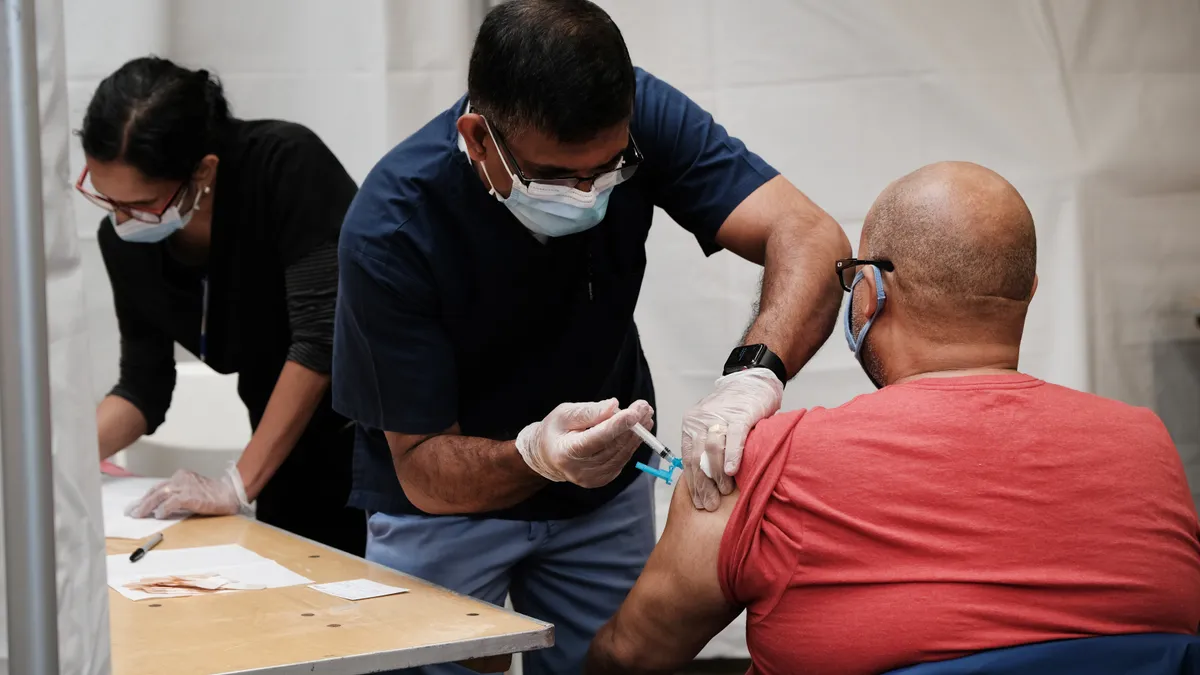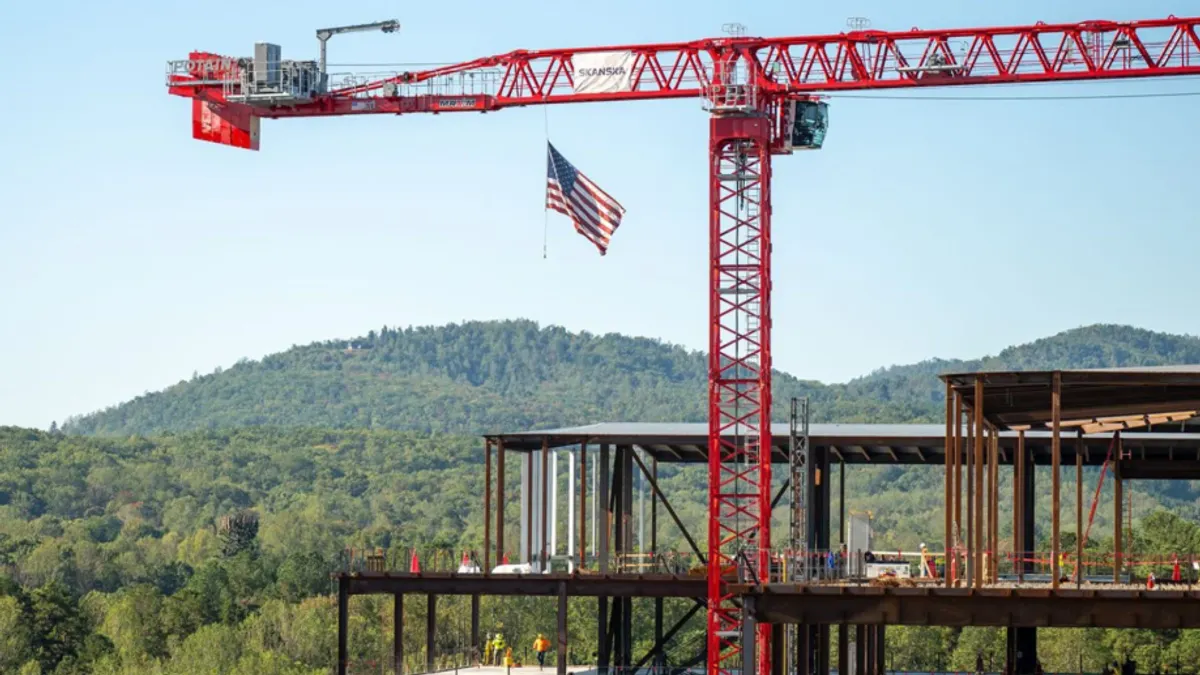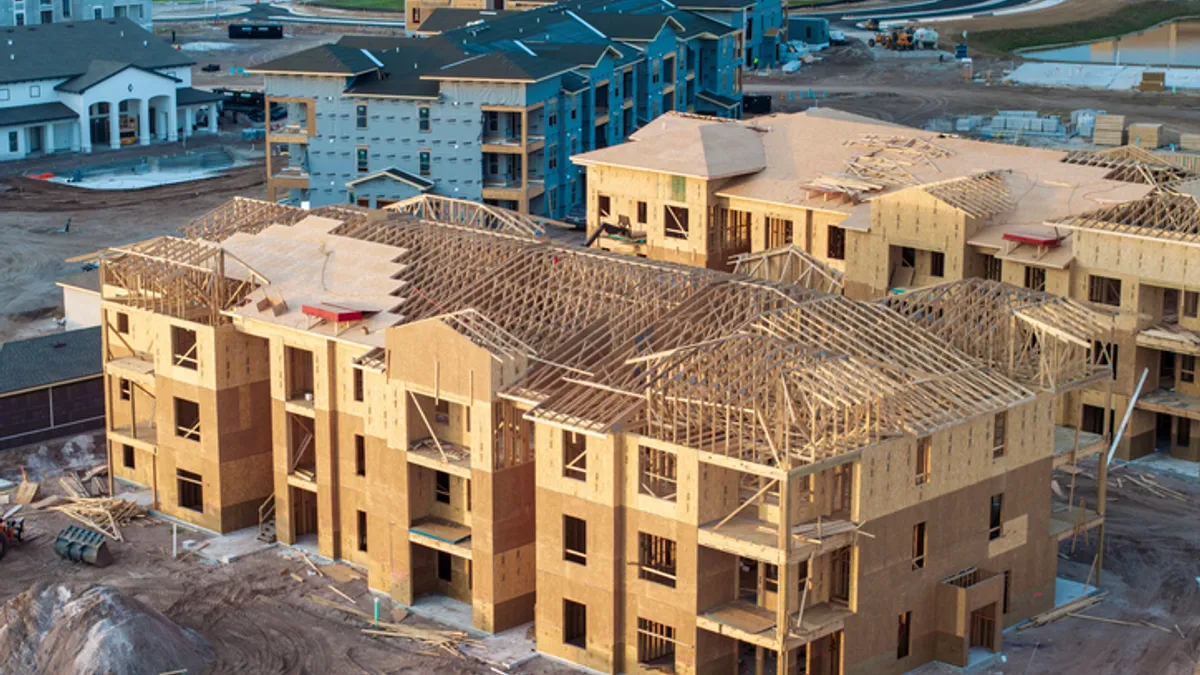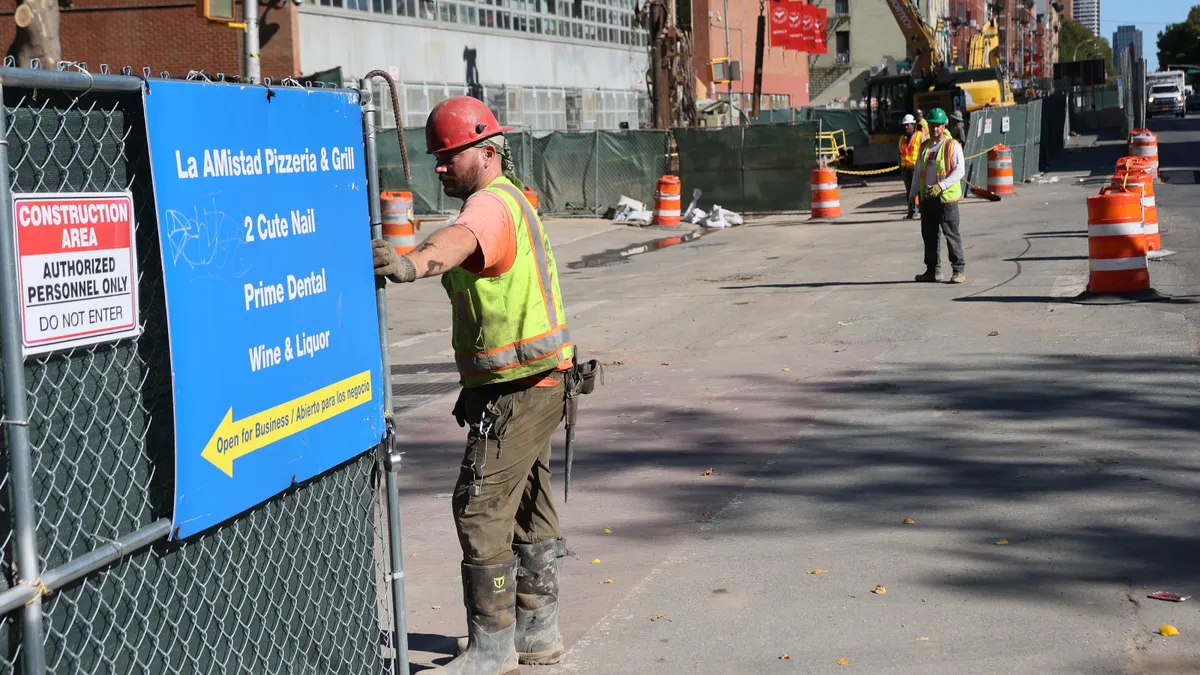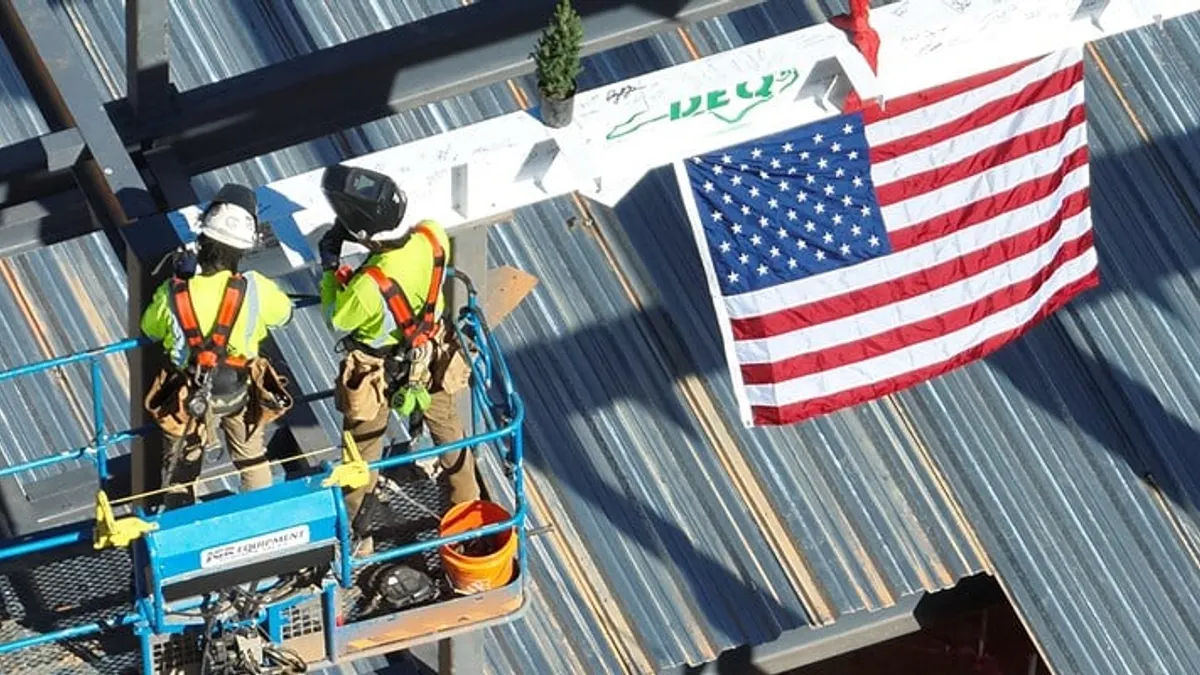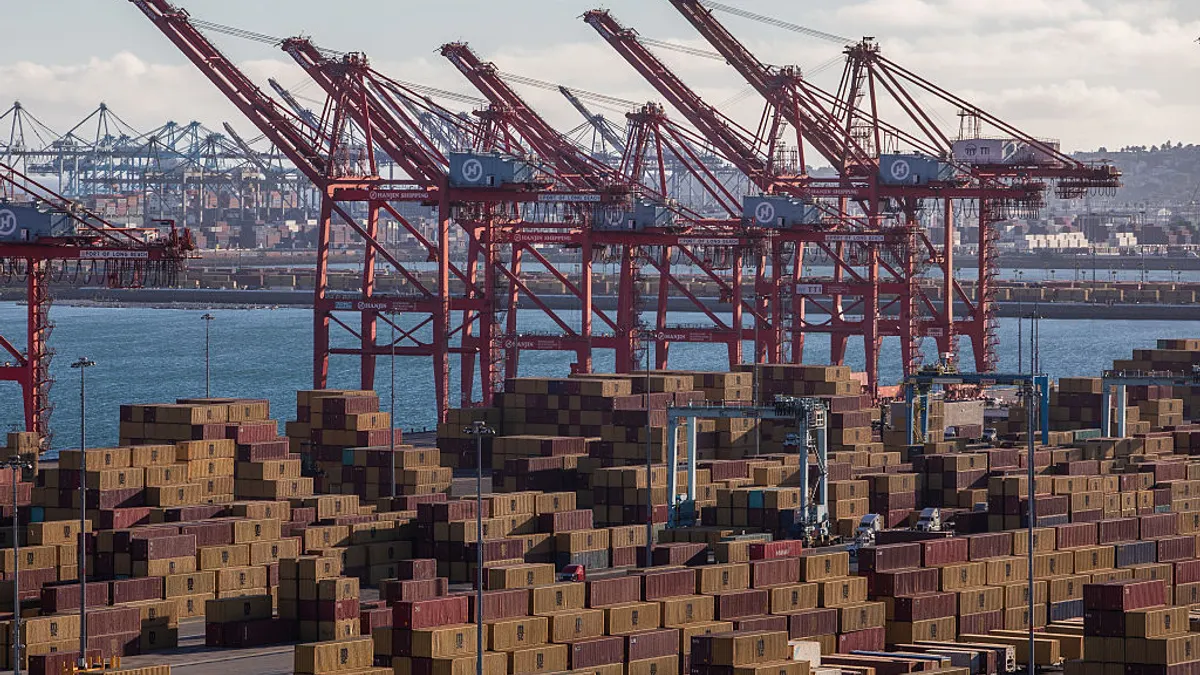Jen L'Estrange, a strategic human resources and workforce consultant, has seen a pattern among her clients' vaccinated and unvaccinated employees.
Vaccinated employees, she said, don't understand why someone wouldn't want to get vaccinated in the interest of public health. Meanwhile, unvaccinated workers don't understand why someone would want to force them to put something in their bodies against their will.
"It is a personal liberty, versus collective well-being, argument," said L'Estrange, founder of Fairfield, New Jersey-based human resources firm Red Clover, which advises construction and contracting clients. "And that's a real values-based conversation."
On Friday, the U.S. Sixth Circuit Court of Appeals reinstated OSHA's emergency temporary standard requiring companies with at least 100 workers to mandate that employees get vaccinated or submit to weekly testing. That means the vaccine-or-test rules is back on, though dozens of new appeals to the Supreme Court emerged Saturday, according to NPR.
Now, as construction firms scramble to comply by the new deadline of Feb. 9 — pushed back from Jan. 4 over the weekend — they're also navigating how to deal with the pointed differences on the issue between their own employees.
"There have been tensions," said Deron Brown, president and COO at Denver-based PCL Construction. "And the longer this drags out, that tension is going to get greater, because people who got vaccinated eight months ago are saying, 'Hey, I did what I was told to do. Why do I still have to wear a mask?'"
On the other side of the debate are employees who are continuing to resist vaccines and mandates, for personal, health, religious or political reasons.
"The longer this drags out, that tension is going to get greater, because people who got vaccinated eight months ago are saying, 'Hey, I did what I was told to do. Why do I still have to wear a mask?'"

Deron Brown
President and COO, PCL Construction
"People are frustrated when they are being guilted or shamed into getting a vaccination — one they may be afraid of or truly don't understand," said Andrew Moyer, executive vice president at Chicago-based Reputation Partners, a national strategic communications firm. "More than just about any other work-related issue, this topic has caused coworkers to question the motives of each other in ways they otherwise would never have done."
Employers, including those in construction, find themselves playing referee as a result.
"Generally speaking, the workforce is looking to employers to protect their personal interests, on both sides of the issue," said Chris Malicki, safety risk advisor at San Diego-based risk management and insurance brokerage Cavignac and Associates. "Navigating today's landscape has put employers into a very difficult position."
Construction-specific issues
Compounding the problem in construction is the industry's high vaccine hesitancy rate.
According to Silver Spring, Maryland-based CPWR, the Center for Construction Research and Training, a construction safety research group, less than 60% of workers in construction occupations are vaccinated, compared to 80% for all other occupations.
That possibility makes employers in construction, where an endemic labor shortage has plagued the industry for years, particularly wary.
"There's a strong chance some workers will resign by walking off the job and saying, 'I don’t want to comply, and so I’m done,'" Malicki said. "There is a real concern."
Topping it all off is the dug in, unyielding attitudes vaccinated and unvaccinated workers are showing toward one another.
"The pandemic has been politicized beyond recognition, and instead of bringing us together, it has further separated us," Moyer said. "Everyone is tired of masking, social distancing and never feeling like there is a 'right' answer."
For L'Estrange, that's led to a sort of selective deafness between the two camps.
"There's a certain unwillingness to hear the other side," L'Estrange said. "I find that challenging, professionally and personally."
How construction firms are bridging the gap
Construction firms are trying to deal with these differences between their workers in multiple ways.
At PCL, for example, Brown said the firm is trying to accommodate unvaccinated workers as much as it can, while protecting its entire workforce.
"We have a lot of education and engineering around it," Brown said. "With crews that aren't vaccinated, we have protocols for social distancing, masking and cleaning. One thing the pandemic taught us all is that we probably didn't clean tools enough, and that we probably didn't have enough hygiene stations on our sites."
The firm has also installed plexiglass dividers on buses that transport workers onsite, and uses fast-acting cleaning products on tools and common surfaces to sanitize quickly. It's tracking internally which employees have been vaccinated, too, a step that helps it provide inoculated workers to jobsites where owners have issued their own mandates.
"We share this information with our personnel so they understand that at some point, we may not have work for them because they are unvaccinated."

Alexandra Shahan
Director of risk management, California Drywall
But tracking its subs isn't as easy, especially those who have fewer than 100 employees, which aren't covered by OSHA's rule and won't be, even if it's ultimately upheld by the Supreme Court.
"That creates a challenge, because it may give people on your jobsite a way out," Brown said. "That could create more concerns in the future."
$250, and a chance for more
San Jose, California-based specialty contractor California Drywall, which has more than 600 employees, has taken both a stick and carrot approach to vaccinations, regardless of what happens with government mandates.
"At some point, we expect a majority of clients to require only vaccinated individuals on their projects," said Alexandra Shahan, director of risk management at the firm. "We share this information with our personnel so they understand that at some point, we may not have work for them because they are unvaccinated."
But before it gets to that point, California Drywall has also been working earnestly to ensure that it keeps as much of its workforce eligible as possible.
That includes offering a $250 incentive to employees who get fully vaccinated, as well as a chance to win an additional, random lottery of $1,000, $2,000 and $5,000. In total, the firm has spent $125,000 toward those efforts, and has netted a 90.1% vaccinated field workforce.
"We make it very clear that this is urgent and of significant importance to us," said Shahan, who noted that the company believes one or two of its employees left because of its vaccination stance.
At the same time, it is also trying to accommodate its unvaccinated staff. For office staff who are still working remotely, that hasn't been an issue — yet.
"When we have a return-to-office mandate, we will require everyone to be fully vaccinated," said Shahan. "If someone refuses to get vaccinated and their job requires them to be in the office, even part time, we will likely have to let them go to ensure the safety of everyone else in the office."
Beyond mandates, talking it out
Communication and empathy can also go a long way in easing tensions between vaccinated and unvaccinated employees, said Moyer.
"Having empathy means accepting the other person's perspective and challenges they face — recognize how difficult this decision can be," Moyer said. He advises companies to try to unite employees via the very thing that has divided them.
"Stress that we all have a shared goal," Moyer said. "Stressing that you don't want anyone to leave the company can help to lower the temperature of the topic."
Employers also need to communicate the reasons why they feel vaccination is in the best interest of the company and its employees — whether by preventing illness in the workplace, ensuring productively, eliminating absences or preventing a shutdown of the business, said Amy Jordan Wilkes, a partner at law firm Burr & Forman in Birmingham, Alabama.
"Most employers are watching the ongoing litigation over the federal vaccine mandates closely while still taking steps to comply with the mandates," Wilkes said. "To this point, courts, including the Supreme Court, have largely upheld vaccine mandates imposed by companies and state governments. The next few weeks will be very interesting as far as the pending litigation goes."



